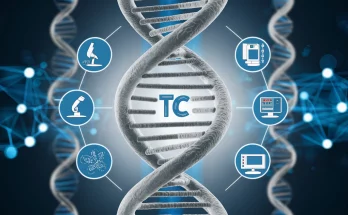Gene therapy is transforming modern medicine by offering potential cures for genetic disorders, cancers, and other life-threatening diseases. By modifying or replacing faulty genes, gene therapy has the power to treat conditions that were once considered incurable. Recent advancements in this field are paving the way for more effective and accessible treatments. In this article, we explore the latest breakthroughs in gene therapy and their impact on healthcare.
What is Gene Therapy? Gene therapy involves delivering genetic material into a patient’s cells to replace, correct, or deactivate malfunctioning genes. This can be achieved through various techniques, including:
- Gene Replacement Therapy – Introducing a healthy copy of a defective gene to restore normal function.
- Gene Silencing (RNA Interference or CRISPR-based) – Suppressing or modifying genes that cause diseases.
- Gene Editing (CRISPR-Cas9 and other tools) – Precisely altering DNA sequences to correct mutations.
- Cell-based Gene Therapy – Engineering a patient’s cells outside the body and reinfusing them to treat diseases like cancer.
Recent Breakthroughs in Gene Therapy
- FDA-Approved Gene Therapies – Several gene therapy treatments have gained regulatory approval, including Zolgensma (for spinal muscular atrophy) and Luxturna (for inherited retinal diseases), showcasing the potential of genetic treatments.
- CRISPR-Based Therapies – Clinical trials using CRISPR gene editing have successfully treated sickle cell disease and beta-thalassemia, offering hope for millions affected by these blood disorders.
- Cancer Immunotherapy – CAR-T cell therapy, a form of gene therapy, modifies a patient’s immune cells to target and destroy cancer cells, revolutionizing treatment for leukemia and lymphoma.
- Rare Disease Treatments – Advances in gene therapy have led to experimental treatments for rare genetic disorders such as Duchenne muscular dystrophy, Huntington’s disease, and cystic fibrosis.
- Non-Viral Gene Delivery – Researchers are developing safer delivery methods using nanoparticles and lipid-based carriers to reduce risks associated with viral vectors.
Challenges and Ethical Considerations While gene therapy holds great promise, several challenges remain:
- High Costs – Gene therapies are expensive, making accessibility a concern for patients worldwide.
- Long-Term Safety – Potential side effects and the long-term impact of genetic modifications need further study.
- Ethical Issues – Germline gene editing (modifications passed to future generations) raises moral and ethical debates regarding human genetic enhancements.
The Future of Gene Therapy The future of gene therapy looks promising with ongoing research aimed at improving efficacy, safety, and affordability. Advances in AI-driven genetic analysis, stem cell research, and precision medicine will further enhance the potential of gene therapy. As technology evolves, genetic treatments may become a standard approach for numerous diseases, transforming healthcare as we know it.
Conclusion Gene therapy is revolutionizing medicine, providing new hope for patients with genetic disorders, cancer, and rare diseases. As scientific breakthroughs continue, gene therapy is expected to play a central role in the future of personalized medicine, offering targeted and long-lasting treatments.




